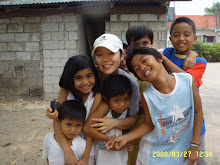As cannibals, the people of the Sawi culture devoured human flesh. However, not only were they eating humans to satisfy their appetite, they believed that eating the flesh of another person would give them complete power over the dead person. Also, one of the tribes ate a Peace Child that was given to them because they believed the spirit of the Peace Child would live inside of them eternally. As I read on, however, I realized the Sawi cared more of the process to reach the opportunity to gain human flesh. They savor the moment when the person about to be eaten stiffens up in terror as the realization strikes him that his fate had been planned. To produce such an effect, they use the concept of “Tuwi asonai man”, which means “fattening a pig for slaughtering”.
From the moment we learn how to talk and start learning about the world, one of the things we are told by our parents is that we should not deceive and betray others. In the Sawi culture however, I realized that the mere act of treachery is considered as an honorable and noble act. In the first two chapters of the “Peace Child”, Yae believes that he has established a successful and friendly relationship with another tribe, Haenam. Yae acts as a diplomat between his own tribe and Haenam. However, the people of Haenam decide to betray him. Not until the moment before he is killed does Yae realize that he had been tricked. Reality strikes him, however, before he can rescue himself out of the predicament; he is killed and is devoured down the throats of the hungry people of Haenam. Yae had been the pig that was fattened for slaughtering. From a world that treats the act of treachery and betrayal as one of the worst actions one could do, the fact that the Sawi culture revered this concept was shocking. This is also shown when Richardson tells the story of betrayal when Judas betrays Jesus. For the Sawi, Judas becomes the “super-Sawi” and hero of the story.
I was shocked to discover that the children in the Sawi culture were trained to be violent and treacherous since childhood. Instead of learning to be considerate and caring, the children were taught to become warriors and live to betray others. Consequently, they would have grown up only genuinely trusting no one but their family. In a society that I am a part of, international relations and connections between many people are essential. Consequently, I found the fact that the tribes could not intermingle with each other surprising.

http://smallwidget.com/fb/widgets/4/pig.JPG
http://mesniertranslation.com/images/shake-hands.jpg



1 comment:
What an interesting post Lucia! I really enjoyed reading your take on the Sawi tenants. I think that your post reveals an academic maturity and deep understanding of global social mores. Norms and values are clearly virtues you uphold. I am pleased to see a sense of self knowledge and an understanding of your own system of ethics. Mrs.Mc.
Post a Comment